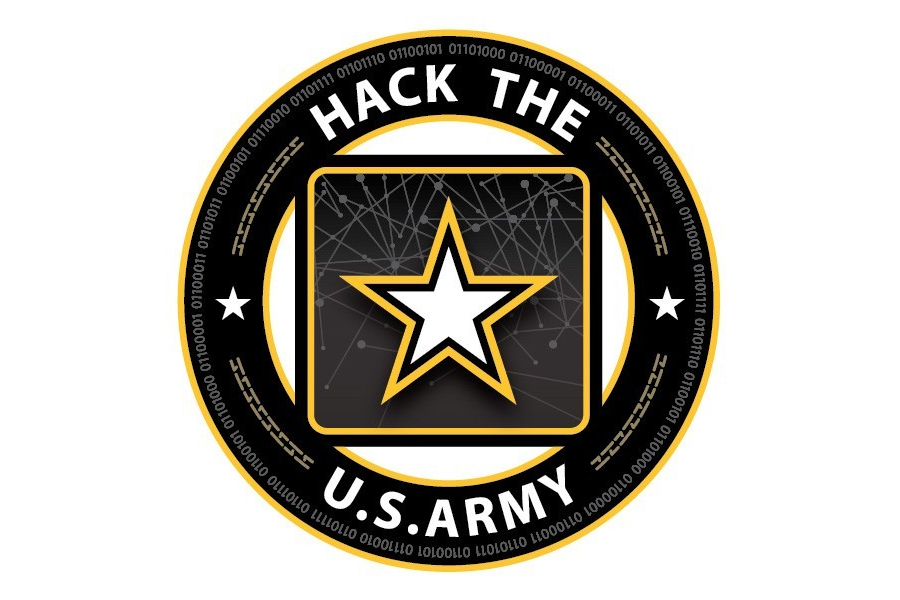US launches “Hack the Army 3.0” bug bounty program
The program is open to military and civilian hackers

Sign up today and you will receive a free copy of our Future Focus 2025 report - the leading guidance on AI, cybersecurity and other IT challenges as per 700+ senior executives
You are now subscribed
Your newsletter sign-up was successful
On Wednesday, the US Defense Digital Service (DDS) announced its third Hack the Army bug bounty program. Hack the Army 3.0 will focus on uncovering vulnerabilities in the US Army’s digital systems.
Launched in partnership with vulnerability coordination and bug bounty platform HackerOne, the invite-only program is open to participation from civilian hackers and US military personnel, but only civilian hackers will be eligible for the bounties.
According to Defense Digital Service (DDS), Hack the Army 3.0 will highlight digital vulnerabilities in the US Army’s assets before nefarious hackers discover and exploit them, allowing defense authorities to better plan for unforeseen cyber threats.
“Bug bounty programs are a unique and effective ‘force multiplier’ for safeguarding critical Army networks, systems and data, and build on the efforts of our Army and DoD security professionals,” said Brig. Gen. Adam C. Volant, US Army cyber-command director of operations.
“By ‘crowdsourcing’ solutions with the help of the world’s best military and civilian ethical hackers, we complement our existing security measures and provide an additional means to identify and fix vulnerabilities. Hack the Army 3.0 builds upon the successes and lessons of our prior bug bounty programs.”
That’s not all. DDS has used similar bug bounty challenges in the past to improve the US government’s security systems. For instance, since its launch in 2016, DDS’s Hack the Pentagon program executed 14 public bounties on exterior-facing websites and applications. The program also addressed 10 private bounties on the US Department of Defense’s sensitive internal systems.
“We are living in a different world today than even just a year ago. Amid disinformation and a global health crisis, citizens are increasingly wary of how, when and where their information is used. For years, the US Department of Defense and respective military branches have successfully strengthened their cybersecurity posture and protected precious data by enlisting the help of ethical hackers on HackerOne,” said Marten Mickos, CEO of HackerOne.
Sign up today and you will receive a free copy of our Future Focus 2025 report - the leading guidance on AI, cybersecurity and other IT challenges as per 700+ senior executives
Marten continued, “Years later, hacker-powered security is not only a best practice in the US military, but it is now a mandated requirement among civilian federal agencies. There is only one way to secure our connected society, together, and the US Army is leading the charge with this latest challenge.”
You can apply to Hack the Army 3.0 online now. The program runs from January 6 through February 17.
-
 Salt Typhoon attack on US congressional email system ‘exposes how vulnerable core communications systems remain to nation-state actors’
Salt Typhoon attack on US congressional email system ‘exposes how vulnerable core communications systems remain to nation-state actors’News The Salt Typhoon campaign marks the latest in a string of attacks on US government communications networks
-
 ‘All US forces must now assume their networks are compromised’ after Salt Typhoon breach
‘All US forces must now assume their networks are compromised’ after Salt Typhoon breachNews The announcement marks the second major Salt Typhoon incident in the space of two years
-
 UK cyber experts on red alert after Salt Typhoon attacks on US telcos
UK cyber experts on red alert after Salt Typhoon attacks on US telcosAnalysis The UK could be next in a spate of state-sponsored attacks on telecoms infrastructure
-
 Healthcare data breaches are out of control – here's how the US plans to beef up security standards
Healthcare data breaches are out of control – here's how the US plans to beef up security standardsNews Changes to HIPAA security rules will require organizations to implement MFA, network segmentation, and more
-
 The US could be set to ban TP-Link routers
The US could be set to ban TP-Link routersNews US authorities could be lining up the largest equipment proscription since the 2019 ban on Huawei networking infrastructure
-
 Why the Space Force wants white hats to attack a satellite
Why the Space Force wants white hats to attack a satelliteCase study Authorities hope the first-of-its-kind competition could bring benefits to the cyber sector
-
 US government IT contractor could face death penalty over espionage charges
US government IT contractor could face death penalty over espionage chargesNews The IT pro faces two espionage charges, each of which could lead to a death sentence or life imprisonment, prosecutors said
-
 US identifies and places $10 million bounty on LockBit, Hive ransomware kingpin
US identifies and places $10 million bounty on LockBit, Hive ransomware kingpinNews Mikhail Pavlovich Matveev was linked to specific ransomware attacks, including a 2021 raid on the DC police department

